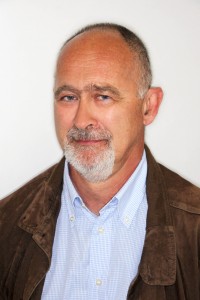Interview to Ubaldo Sagripanti, psychiatrist, participant to the Fifth Edition of the Master in Applied Narrative Medicine
Why did you choose a Master in Narrative Medicine?
I had already started to be interested in Narrative Medicine on my own, participating to seminars and congresses which stimulated me in deepen more this approach. Nevertheless, I realized that this self-educated training was disorganized and incomplete.
What did you expect from the course?
I heard about the Master at the First National Congress of Narrative Medicine. I was expecting, above all, a method, a cultural bases shared among the main experts and indications on the possible developments of Narrative Medicine.
What did you find? What did you discover throughout Narrative Medicine?
I found all that I was expecting for, enriched by a great professionalism and humanity of all the faculty, together with the international scale which stroke me. This aspect needs to be underlined, since comparing with references from other Countries on data and objective parameters, on direct experiences of care, beyond linguistic barriers, is universal and with great potentialities.
With Narrative Medicine I felt the warmth. Knowledge without doubts is cold and artificial. Also caring for someone cannot be reduced to something determined. Narrative Medicine allows to renovate continuously the relationship among humans, considering the infinite variety of experiences. This is exciting, we will never finish to discover.
How your project work was welcome by your patients, colleagues and health care managers?
At the beginning my colleagues were uncertain, than they accepted to collaborate, gradually more convinced along the project. My patients were astonished and curious to meet a physician interested in their stories. The health care management hasn’t involved yet, since we are still in a pilot phase.
Do you have any projects on Narrative Medicine?
I am continuing in a more systematic way what I had already started before the Master. Applying Narrative Medicine in Psychiatry is not easy, because of the stigma and cliché on this approach. But once overtaken these obstacles, I think it is possible to do so much, especially on prevention and diagnosis on some conditions which impact a lot on patients’ quality of life, their families and costs. I am convinced that Narrative Medicine can be an efficient tool and I hope to be able to demonstrate that.
I manage a website – www.20centesimipsichiatria.it – to divulge the main concepts of psychiatry in a simple way, trying to avoid prejudices. I would like to start a collection of narratives from patients and their family members who lived a psychiatrist pathway of care. Furthermore, I have been working on a project on Diabetes type 2 to apply Narrative Medicine as a tool to improve compliance. Finally, I would like to continue my interest in Medical Humanities, a fundamental way to lead to Narrative Medicine.
